Amazing Nasa images reveal Pluto's landscape
- Published
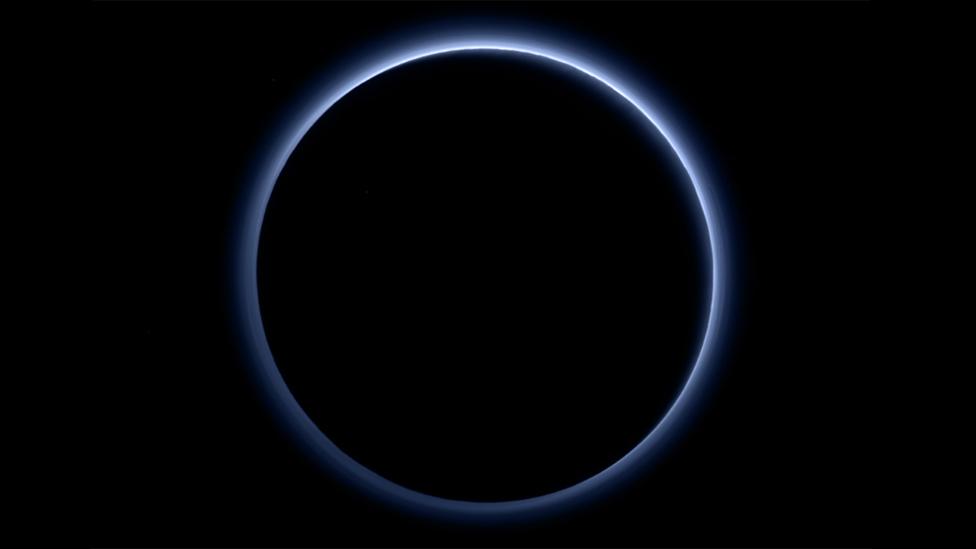
Pluto has a beautiful blue-tinged atmosphere
Nasa has released new images of Pluto and its largest moon Charon.
The latest images have revealed more about the dwarf planet and its atmosphere.
They were taken by the New Horizon spacecraft when it flew past the Pluto system on 14 July.
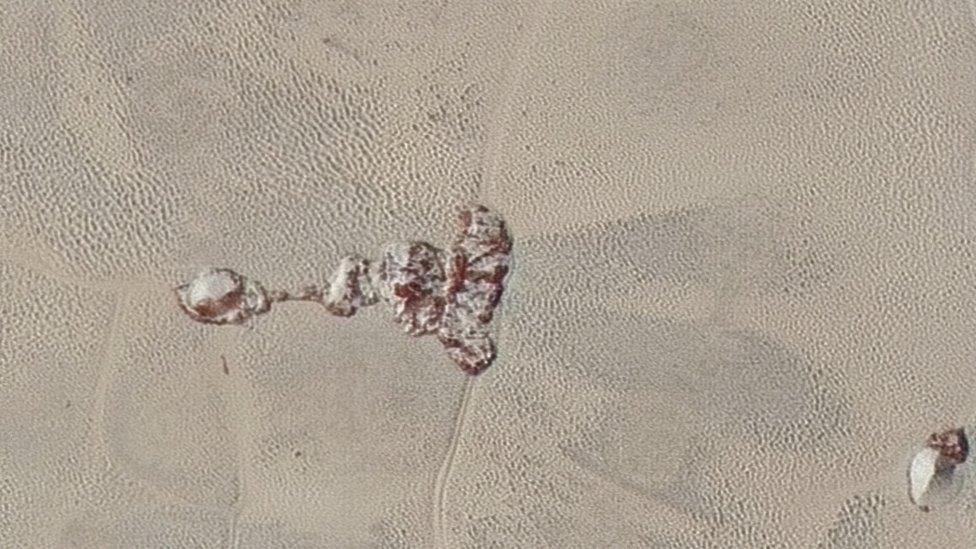
The images have captured Pluto's varied landscape - here a textured area surrounds two ice mountains
The scientific data sent back suggests that Pluto has one of the most varied landscapes in the Solar System.
The images captured mountains, dunes, cratered areas and ones that are smooth.
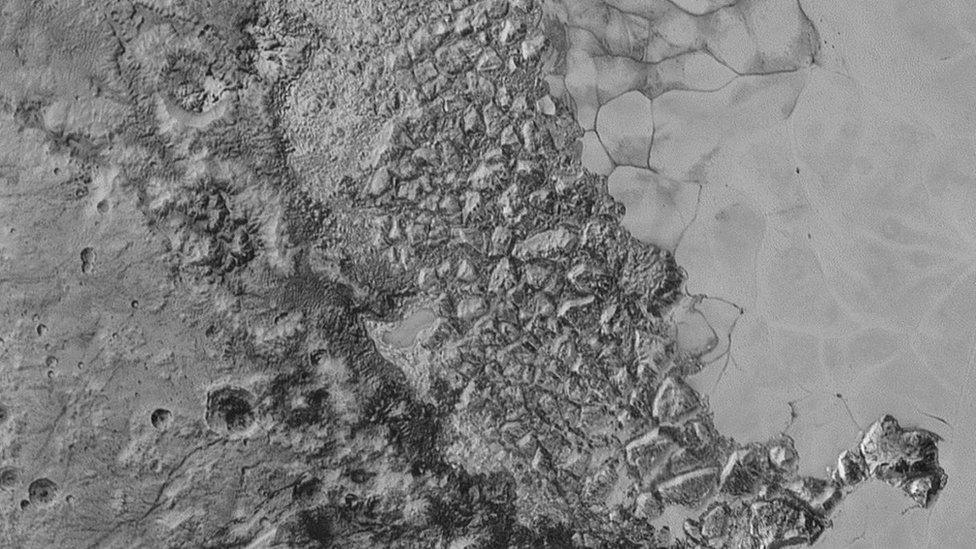
The planet has smooth areas that don't have any craters
The head of the mission, Prof Alan Stern, told the BBC that what he has seen so far is "amazing" and has already transformed our thoughts of the far away world.
"It certainly rivals the Earth and Mars, perhaps even occupies the number one spot for complexity of all the planets in the Solar System."
"The Pluto system is much more complex than I had expected. Pluto itself displays (such a diverse) range of geological landforms that it is unprecedented in the Solar System," he explained.
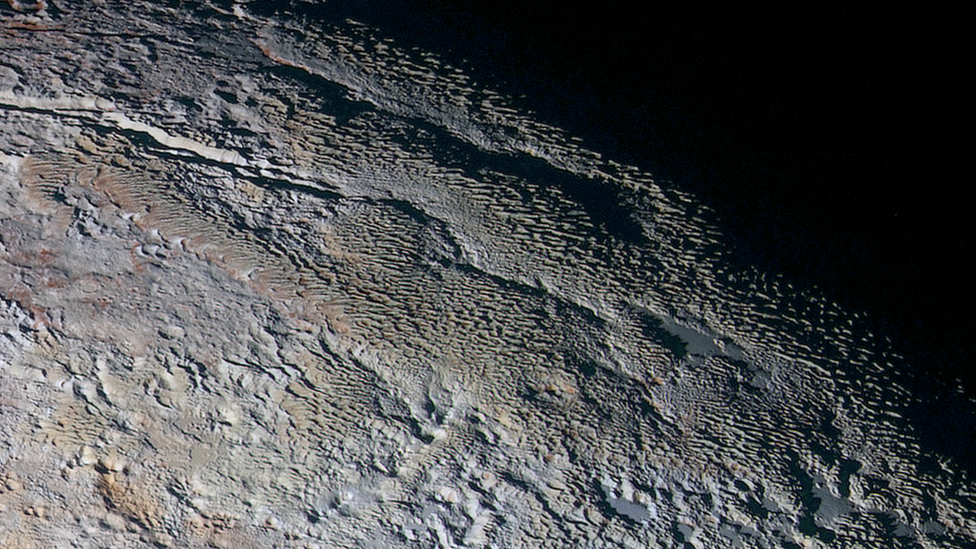
This mountainous area has patterns which have left scientists puzzled - they hope to work out how they were formed
Pluto lost its status as a planet in 2006 after the discovery of similar worlds in our outer solar system like the dwarf planet Eris.
But the New Horizons mission suggests that Pluto might be larger than Eris and should be called a planet.

This area is known as the 'heart', scientists think it's made up of nitrogen ice. But they want to know why other areas on the planet are not like this one
So far, Nasa's New Horizons probe has sent back just a small amount of the data it collected.
It will send back higher quality images in the coming months, which will show new details of a world that is more beautiful than anyone had imagined.
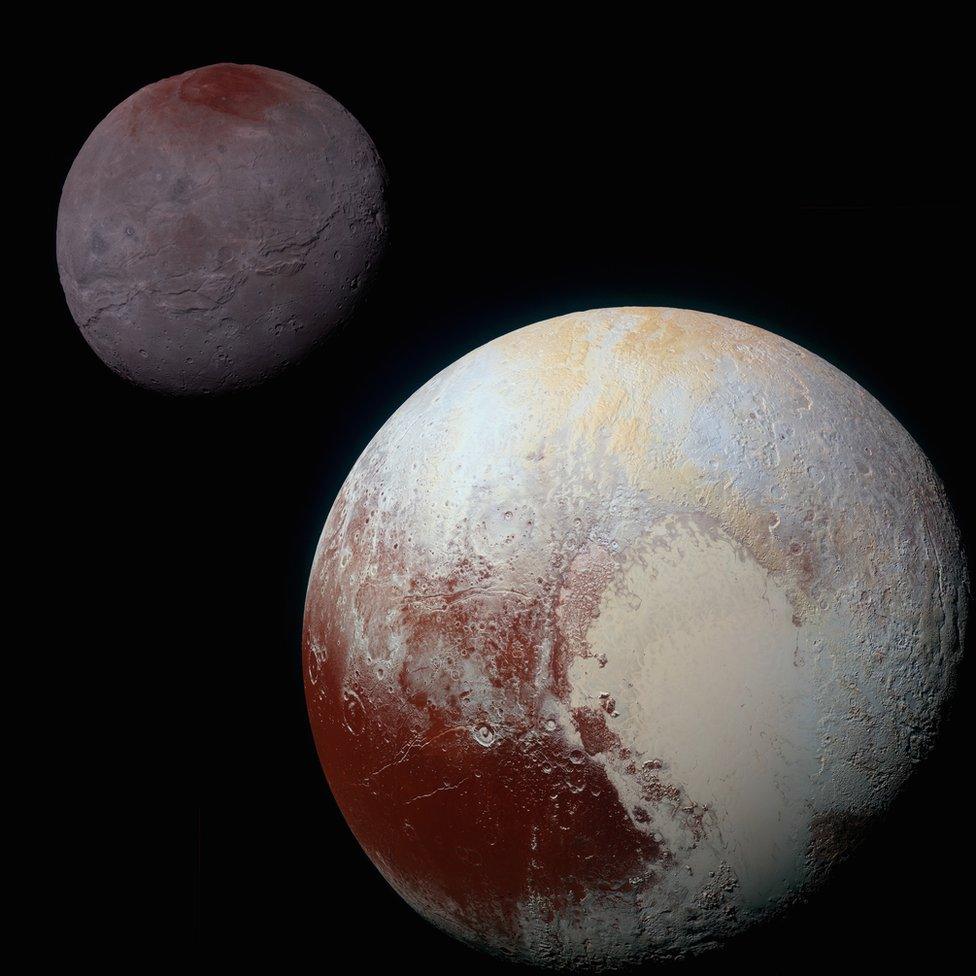
The New Horizons spacecraft is due to send back more amazing images soon
There will also be new information about Pluto's moons.
We've only had a glimpse of its largest moon, Charon.
It's three times smaller than Pluto but theses pictures show canyons that are several kilometres deep.
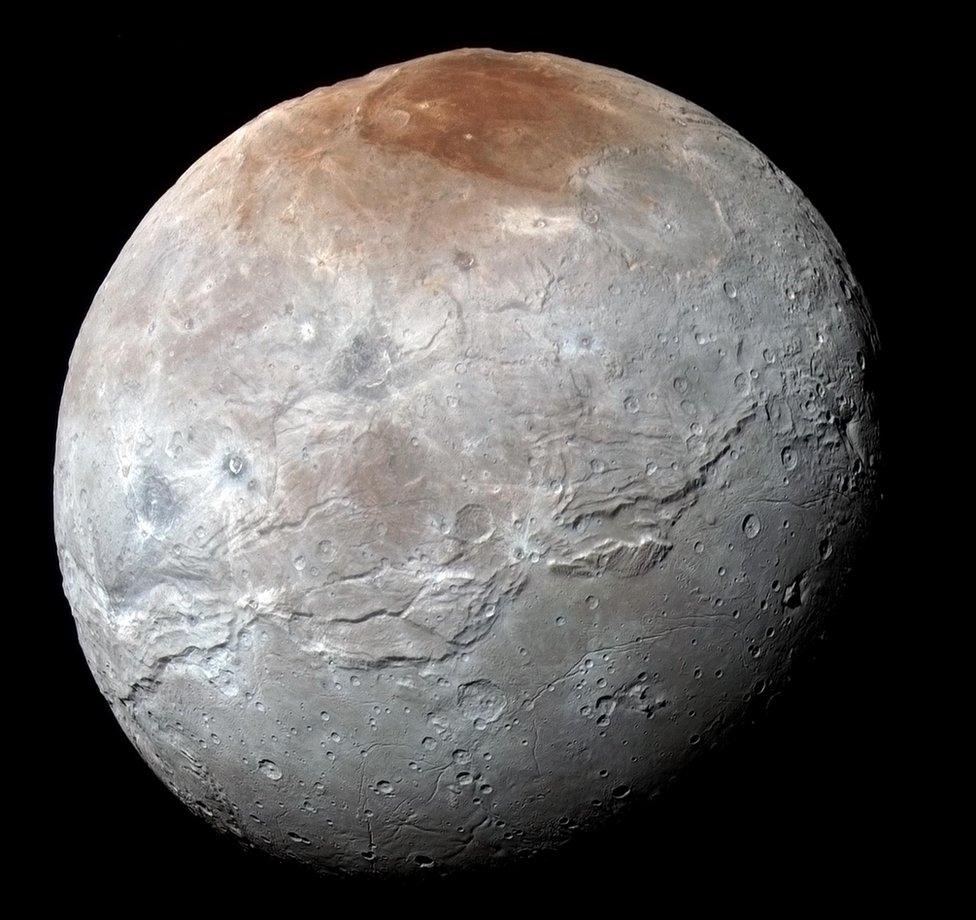
Pluto's largest moon Charon has canyons that are several kilometres deep
In just a few months, our knowledge of Pluto has already been transformed. And, according to Prof Coates, there is much more to come.
"The data from New Horizons is rewriting the text books about the outer Solar System. It is a real voyage of exploration to look at this mini solar system of Pluto and its moons."
- Published16 October 2015
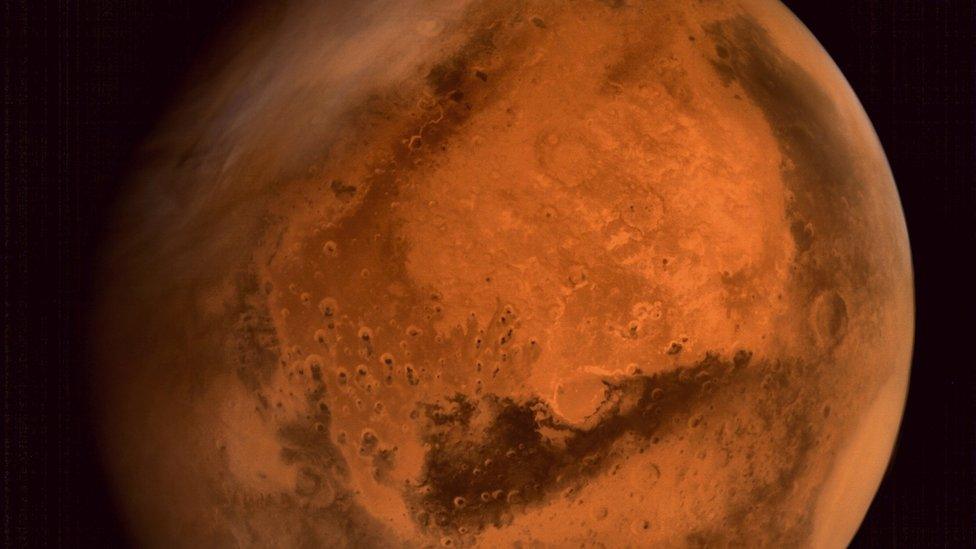
- Published29 September 2015
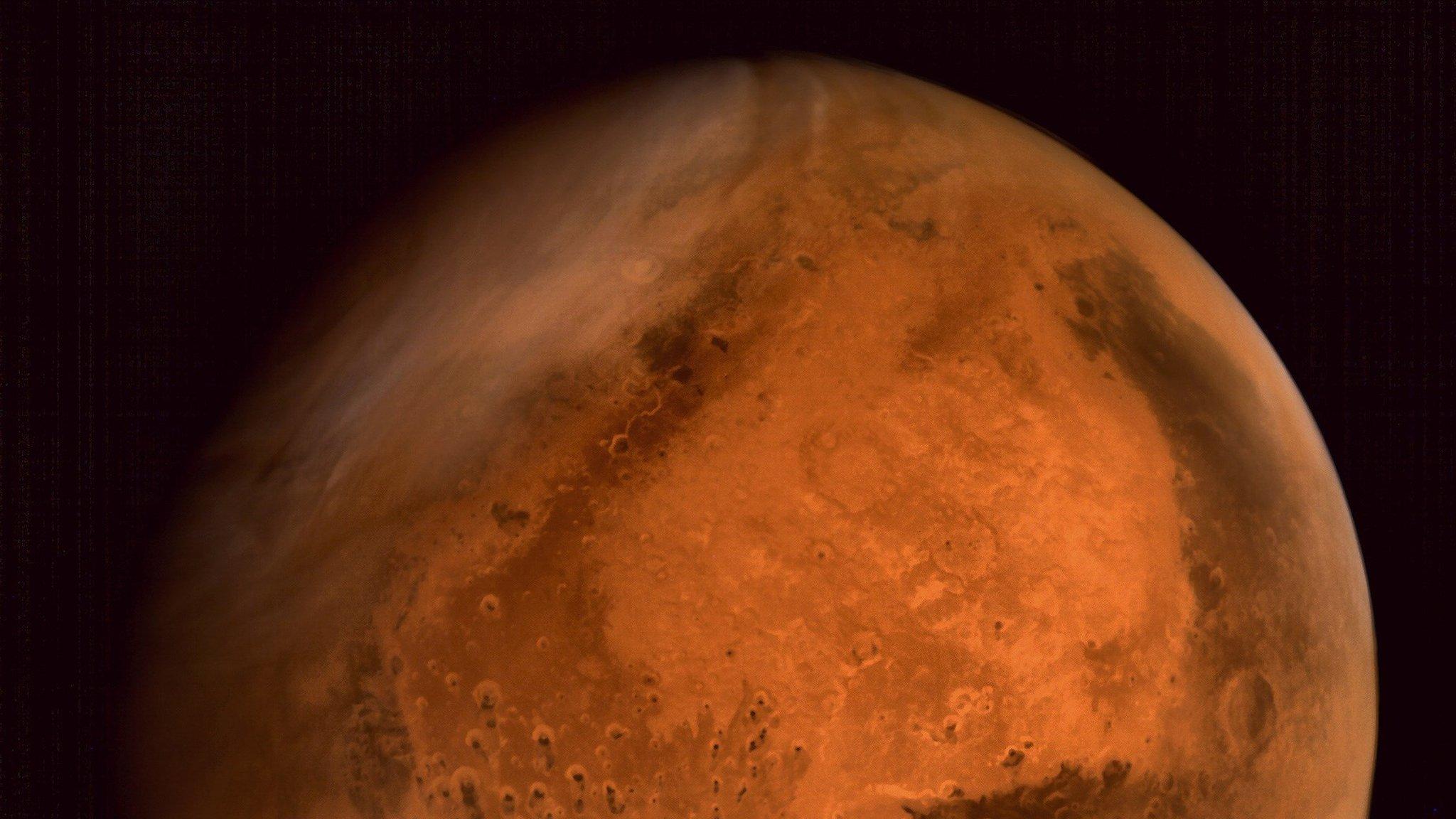
- Published29 September 2015
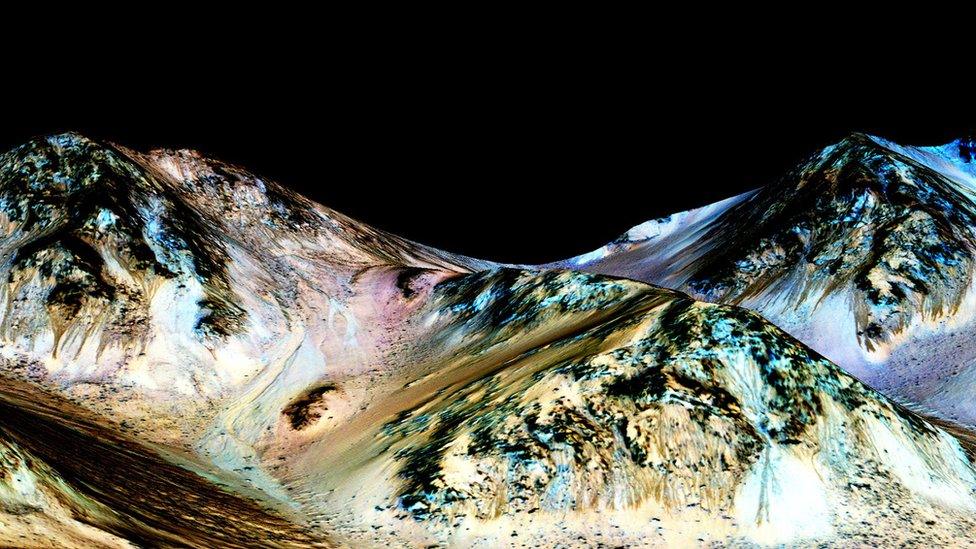
- Published16 October 2015
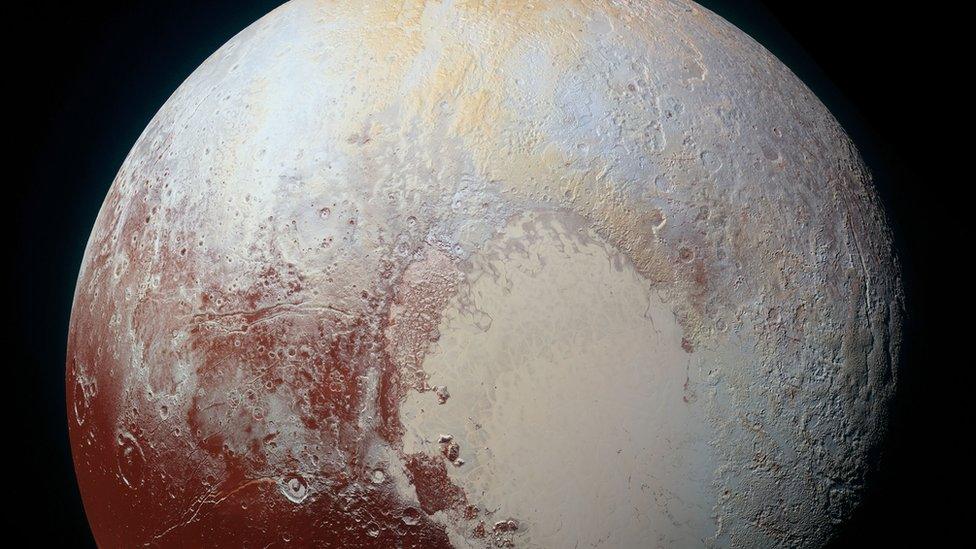
- Published14 July 2015
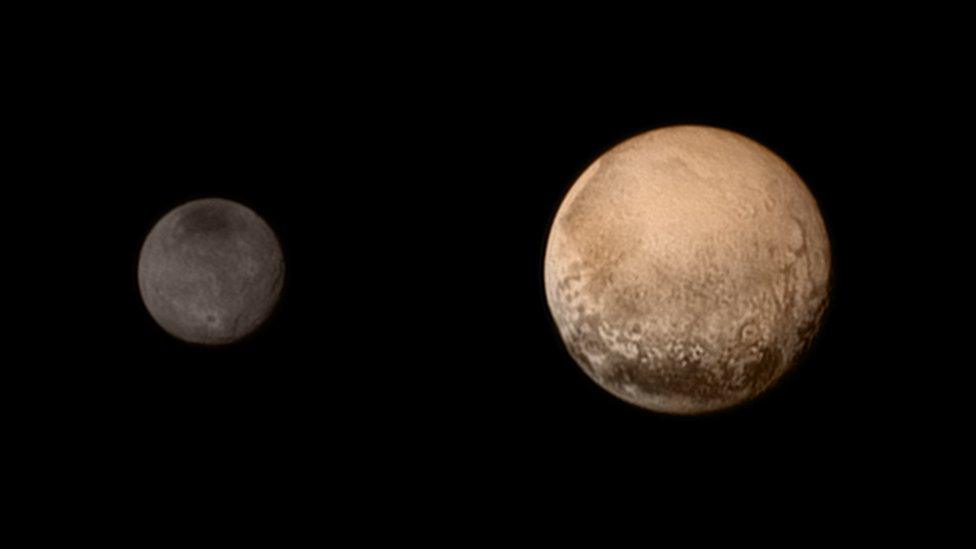
- Published26 January 2015
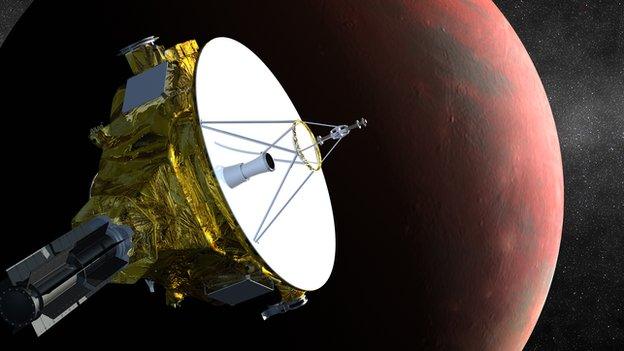
- Published15 July 2015

